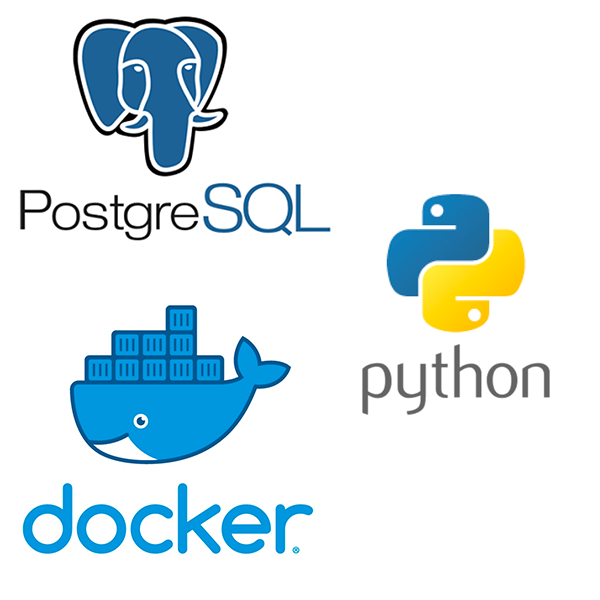
Running PostgreSQL using Docker on your local machine is very straightforward, ..and very handy when you’re developing!
The following docker-compose file launches a PostgreSQL 13.1 Database instance that stores the data in your local folder /Users/localname/data. You can connect to the database with user userxyz and password password123.
file: docker-compose.dev.yml
version: "3"
services:
postgres:
image: postgres:13.1-alpine
ports:
- 5432:5432
environment:
POSTGRES_USER: userxyz
POSTGRES_PASSWORD: password123
volumes:
- /Users/localname/data:/var/lib/postgresql/data
Launching a PostgreSQL instance:
> docker-compose -f docker-compose.dev.yml up
Finally, test if the PostgreSQL instance is running with Python. First install the PostgreSQL Python library when needed:
> pip install psycopg2-binary
Connection to the database:
import psycopg2
user = "thijs"
password = "aZABcsXxt1VqyVUjXYav"
url = f"postgresql://{user}:{passwords}@localhost:5432/{user}"
engine = create_engine(url)
Create a table, insert a record, and execute a query:
# create a table
engine.execute('CREATE TABLE "EX1" (id INTEGER NOT NULL, name VARCHAR, PRIMARY KEY (id));')
# insert a record
engine.execute('INSERT INTO "EX1" (id, name) VALUES (1, \'John\')')
# Query and print records
result = engine.execute('SELECT * FROM "EX1"')
for row in result:
print(row)
When done, stop the PostgreSQL instance,
> docker-compose -f docker-compose.dev.yml down
One thing to note is that you should never store passwords in files. In one would use variables like DB_USER and DB_PASSWORD in the docker-compose.yml file:
version: "3"
services:
postgres:
image: postgres:13.1-alpine
ports:
- 5432:5432
environment:
POSTGRES_USER: ${DB_USER}
POSTGRES_PASSWORD: ${DB_PASSWORD}
volumes:
- /Users/thijs/Projects/DeepFund-API/DeepFund-API-admin/data:/var/lib/postgresql/data
Docker-compose will automatically look for a .env is the current directory, and substitute variables found in that .env file
DB_USER=userxyz DB_PASSWORD=password123
Alternatively, you can also specify a custom environment variables file. This is handy when you need to test various configurations / environments with different settings.
> docker-compose --env-file=dev_settings.txt -f docker-compose.dev.yml up